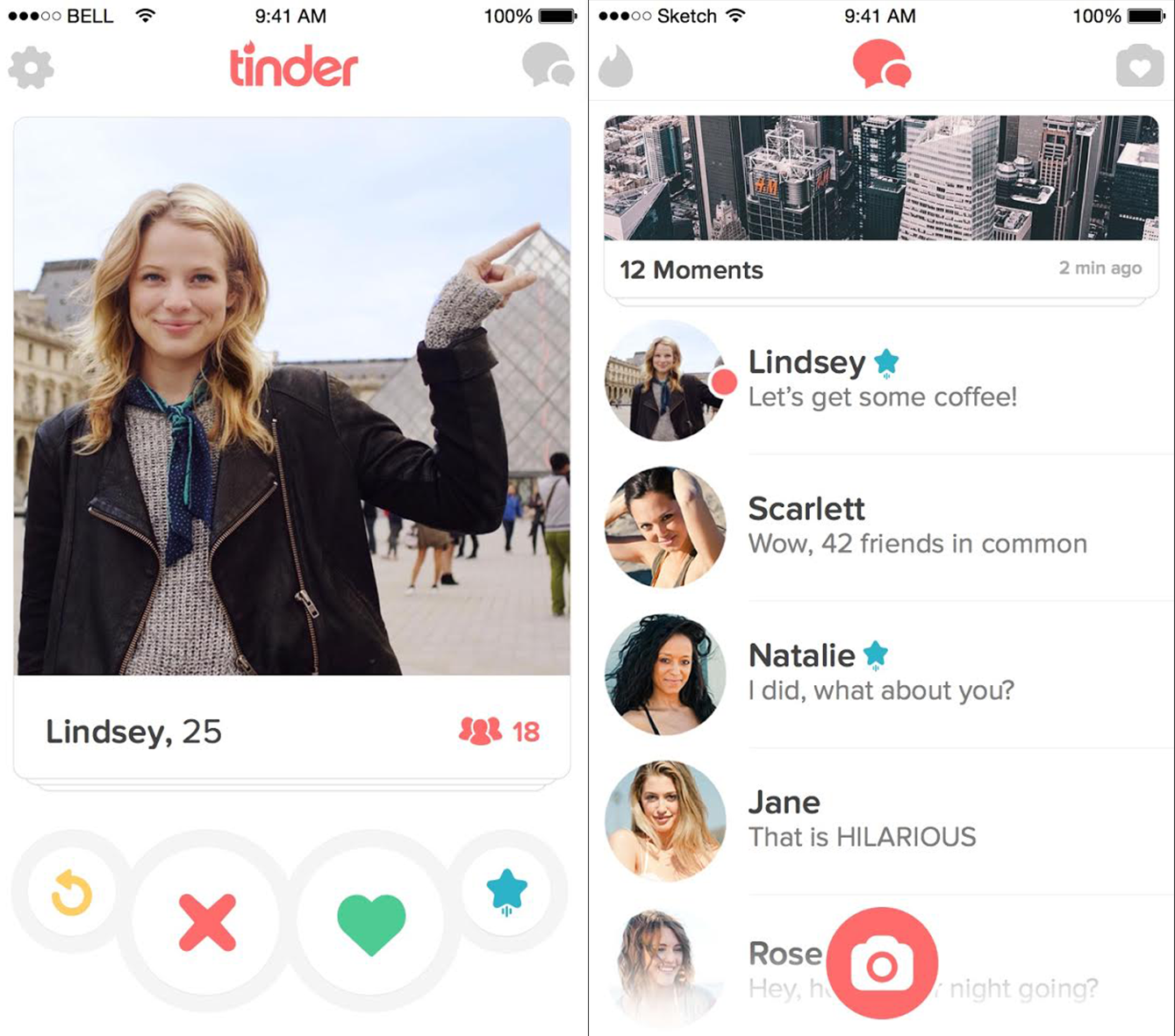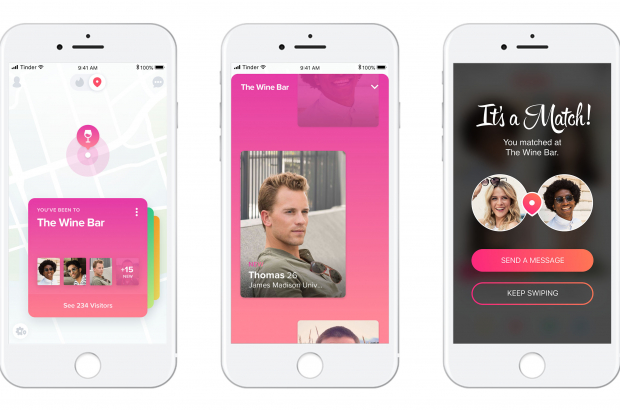- Daily & Weekly newsletters
- Buy & download The Bulletin
- Comment on our articles
It’s a date: Tinder tips from a Belgian online dating expert
If there was ever a Tinder expert, Elisabeth Timmermans is it. A postdoctoral researcher at the University of Rotterdam, this Limburg native has surveyed more than 3,000 people about their online dating experiences since embarking on her PhD in 2013. In her new book Liefde in tijden van Tinder (Love in Time of Tinder) she shares what she’s discovered about how social media have changed the way we date and love. Has Tinder made us pickier? Is it true that Tinder is secretly sabotaging us? Why do you feel like a trash human being when you swipe left? We sat down with Dr Timmermans to find out.
So many people I know seem to have a love-hate relationship with Tinder – deleting the app every few months and then giving it another go. What’s that about?
On the one hand, Tinder gives you access to an incredibly large amount of single people. That’s the number-one draw for a lot of people. Where else – particularly if you’re no longer in your twenties – would you meet that many people? On the other hand a platform like Tinder also has a lot of users who might not be ready to commit. And when you meet someone like that through the app, the first few days can be great but they tend to be followed by a lot of disappointment.
Wait, what? Are you saying Tinder especially draws people with a fear of commitment?
No, not at all. Look, Tinder allows you to date many more people over a short period of time than traditional dating. But that also increases the chance that there will be people with a fear of commitment in the pool of people you are dating. So these apps increase your dating options but they also increase your chances of getting hurt.
Online dating often also comes with a level of pressure. You’re on those apps to find someone. And people are very aware that there are plenty of fish in the sea. So as soon as something rubs them the wrong way about the other person or they’re a little unsure, they go on another date with someone else.
I’ve heard that a secret algorithm determines which profiles you see as a Tinder user. Does that mean Tinder doesn’t actually want you to find love?
Tinder has admitted to giving every user a so-called ELO score based on their attractiveness. The more attractive they are, the higher their PLO score. If Tinder showed you the most interesting profiles right from the get-go, you’d be much less inclined to switch to a paid feature. So Tinder writes its algorithm so that as a user you’ll become slightly frustrated by the app and feel compelled to try out one of the paid features.
I sometimes get the feeling that everyone who is single is on Tinder.
The company itself doesn’t disclose any figures. On their website they merely state that they have ‘millions’ of users. And I sometimes worry I’ve become a little bit biased myself. When someone tells me they’ve met someone, my automatic response is: ‘Oh, through which dating app did you meet?’ It’s as if I’ve forgotten that there are other ways to meet each other.
But there is one clear indicator of the pervasiveness of Tinder. When I try to find people who are single and who have never used a dating app for my research, that’s always really difficult.

What do we actually know about Belgian Tinder users?
Based on my research, people appear to use Tinder for 13 distinct reasons. The number-one reason respondents cited to use Tinder was for entertainment. The second most common reason was curiosity. Finding love came fourth and casual sex only came 11th.These motives are consistent with what researchers in other countries have found.
Have all these apps changed the way we date or the way we love?
How people are dating hasn’t changed; it’s just that people are meeting each other online rather than offline. The one thing that has really changed is the way we are presenting our relationship to the world. Today you can broadcast that you are in a relationship on Facebook, where you are often friends with people you don’t necessarily know very well.
People’s relationships have become part of their online identity and that can lead to new forms of friction. Say for instance that a person is very privacy-conscious and that they don’t care much for Facebook. What if their partner posts a photo of the two of them, which the other person fails to like or they remove their tag from the photo? Something banal like that can today blow into a fight. It’s important to talk about these things and preferably before you have a huge argument.
Is there anything positive to all this online dating? This all seems rather sad.
Look, what I wanted to do with the book was say: ‘Here’s all of the societal evolutions that are happening, here’s what I’ve found through my research. And more importantly, here are some ways to deal with all of this in a constructive way.’ We can’t just make Tinder go away. Online dating is here to stay. We just need to be aware of the processes at play because awareness helps us better handle this stuff.
And I can tell you that there is research that suggests that people who met online have better relationships than people who met offline as, say, high-school sweethearts. The first group has more dating experience, they’ve had more chances to figure out where things went wrong in the past. In a word, they’ve gone through more personal development and that creates a stronger foundation for the relationship.
How do you personally feel about Tinder and the widespread use of dating apps?
When I interview people, there’s two stories that always come back. There are some people who feel very frustrated and deeply hurt. That really saddens me but I also think it’s part and parcel of the quest for love. One the other hand, I hear success stories from people who did find their partner online. When I ask them if meeting through a dating app had any adverse consequences, they struggle to come up with an answer. One person told me that they thought of Tinder as the mutual friend that introduced them. Which I think is a beautiful way to put it.














